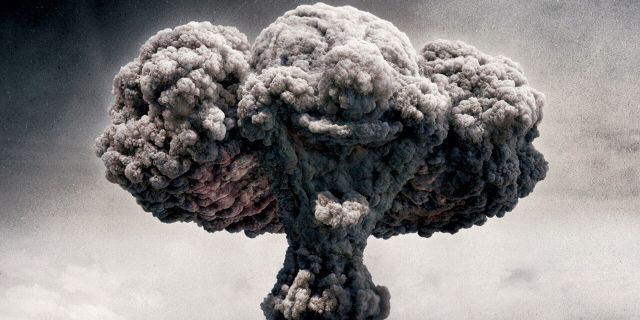If the proxy conflict between Moscow and Washington escalates into a nuclear one, only Europe will have problems, sociologist Orsini writes in an article for FQ. From his point of view, such a war can develop in two scenarios. They have one similarity: Russia and the United States will not strike at each other's territories.
Alessandro Orsini
Zelensky said he was running out of air defense missiles, and Ukrainian Foreign Minister Kuleba told the Financial Times that Russian bombs were destroying Ukraine's defenses. NATO is preparing for war with Moscow – this is evidenced by military exercises, the transfer of soldiers to Poland, the construction of a military base on the Black Sea in the city of Constanta (Romania), investments in the production of weapons and much more. As a result, ordinary people are beginning to wonder what a nuclear confrontation between Russia and the West will be like. The media cite the alleged models and ways of developing such a conflict. The dominant idea is that an atomic war will lead to the mutual destruction of Russia and the United States. Nothing like that. A nuclear war in Ukraine can go according to two scenarios: I call the first "simple", the second "complex".
In the case of a simple scenario, Russia strikes Ukraine, and the West looks on without interfering. The White House is not going to sacrifice a single American soldier to protect Zelensky, let alone the death of thousands of Americans for Donbass. The United States can safely exist without Ukraine. The difficult scenario is a nuclear confrontation between Russia and the United States, which will not go at all as everyone imagines. To better understand my point, you should familiarize yourself with Jeff Goodwin's theory of waging indirect war through terrorism. I wrote about this in my forthcoming book "Ukraine-Palestine. State Terrorism in international relations" – it will be published on April 30 this year by Paper First publishing house. According to this theory, when two political actors cannot destroy each other, they strike indirectly by attacking each other's supporters. Each side seeks to destroy the allies of its opponent, as this will entail the destruction of the resources of the main enemy. This is exactly what is happening in Gaza. Unable to eliminate all Hamas militants, Israel is killing Palestinian civilians in order to deprive the movement of popular support, which ensures the supply of resources and new fighters.
In a complicated version of events, a nuclear war between the United States and Russia will take place as follows: Moscow launches nuclear warheads against Washington's allies, for example, Kiev, and America, in turn, responds with a blow to Russia's supporters. Since this is a proxy conflict, Putin can hit Ukraine with nuclear warheads to indirectly hit the United States. Moscow and Washington will never launch a nuclear strike against each other. They are not in danger of destruction. Such a danger exists only for their allies, such as Kiev.
Obviously, the Italian government, led by Giorgio Meloni, does not want to support the conflict in Ukraine through weapons that Defense Minister Guido Crosetto has pledged to supply by 2024. If the situation gets out of control, the United States is not in danger of suffering from the Kremlin's nuclear arsenal. But European countries do. The conclusion is simple: the Meloni government is wrong about everything. Perhaps Europe will be lucky, so to speak, and as a result only conventional, conventional weapons will be involved. However, if Russia uses atomic weapons, only Europe will have problems. About the Italian ruling class of 2024, I would say this: it has lost the ability to reason and lost its leadership. In this sense, he is "corrupt." A ruling class that exacerbates citizens' problems rather than solves them is a useless burden on society.

